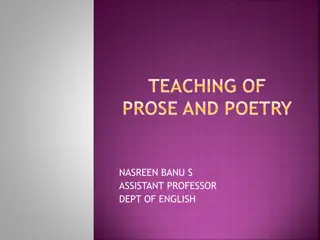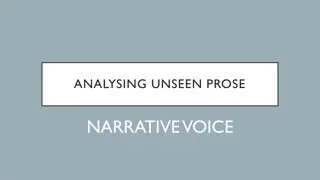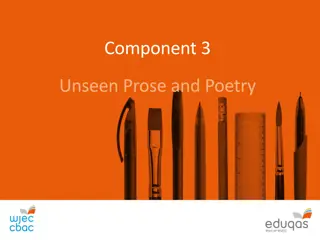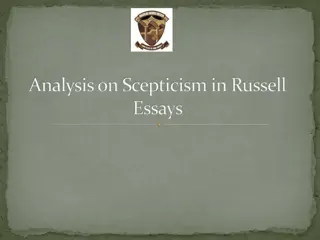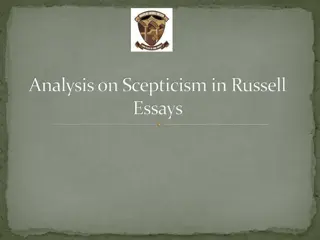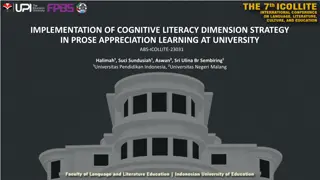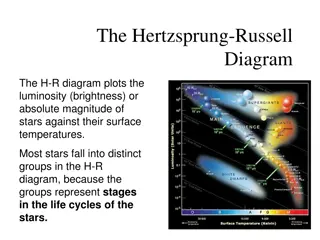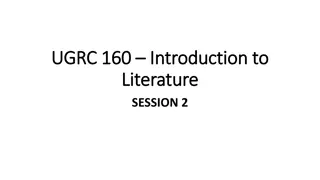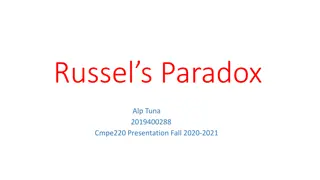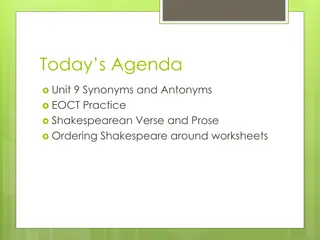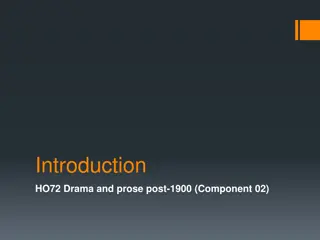Exploring the Mastery of English Prose: The Style of Bertrand Russell
Bertrand Russell, a Nobel Prize-winning writer, revolutionized English prose with his lucid and simple expressions on complex subjects. Known for his use of long sentences, terseness, allusiveness, and irony, Russell's style combines clarity with deep meanings and continuity of thought. His allusions to biblical and classical texts add a scholarly touch, while his ironic humor critiques modern attitudes towards intelligence and fashion.
Download Presentation

Please find below an Image/Link to download the presentation.
The content on the website is provided AS IS for your information and personal use only. It may not be sold, licensed, or shared on other websites without obtaining consent from the author. Download presentation by click this link. If you encounter any issues during the download, it is possible that the publisher has removed the file from their server.
E N D
Presentation Transcript
Russell is one of the greatest masters of English prose. He revolutionized not only the subject matter but also the mode of expression. The subject may be very difficult but his manner of expression is so lucid and simple that even a lay man can understand him without any special difficulty. he was awarded Nobel Prize for literature in 1950.
Long sentences Terseness Allusiveness Irony and Sarcasm Analytical and Rational Use of Rhetoric, Metaphors and Similes Lucidity
The first salient feature of Russells style is its lucidity. The author is direct, simple and clear. He opens even a most complex issue with clarity. He is a reformer thinker and so clarity pays him most. Complexity of expression leads to ambiguity and that defects the very aim of a writer like him. Russell s aim was to create a public opinion for breaking the demoniac designs of ambitious men in political, economic and social spheres, so he presented his ideas with brilliant clarity. He recorded his reactions and opinions without attempting literary flourishes
The next trait of Russells style is its Baconian terseness. Many sentences read like epigrams and proverbs full of deep meanings like Extreme hopes are born of extreme misery. Russell s sentences are pregnant with thoughts like those of Bacon. Russell has one advantage over Bacon. The sentences of Bacon are small epigrams and as such they have no link with each other. They suffer from abruptness and discontinuity of thought. But Russell s essays are well-knit and systematic. They have a continuity of thought.
Another remarkable feature of Russells prose is its allusiveness. He quotes from the Bible, Shakespeare, Roman and Greek writers. This he does to make his ironical overwhelming force more effective. His quotations are harmoniously woven into the texture of his thoughts. The Biblical phrases and quotations lend sublimity to his prose and make his style scholarly.
Russell makes frequent uses of wit and humour. It may be remembered that Russell s humour is generally not pure fun. It is ironical. Irony is a principal instrument of his style. He ironises the so-called modern-minded people in The belief that fashion alone should dominate opinion has great advantages. It makes thought unnecessary and puts the highest intelligence within the reach of every one.
Russell was a profound thinker. His style is chiefly governed by his sense of reason and not by his sense of emotions. This is precisely the reason that his prose resembles that of Bacon, Dryden or Aldus Huxley and E.M. Forster. He never grows poetic like Milton. It is never ornamental like Ruskin s prose. His chief concern is to convey his ideas to his readers. That is why his prose style exhibits his balanced personality. He writes chaste prose and there is a rationalistic approach to life.
Like Ruskin, Russell also frames long sentences, but there is great difference in their approaches. In Russell, the analytical effect is more pronounced. He thinks deeply and expresses the matter in a logical manner. This tendency to be rational towards a problem is the cause of the formation of a sentence running into many lines.
Russell makes a great use of the art of rhetoric to emphasize his point, but he differs from Burke or Carl yle in this respect. He does not make his rhetoric pompous and exaggerated. He is up to the point and very subtle. He predicts the fate of mankind in the event of a Third World War.
C.E.M. Joad writes Russells prose has Clarity, grace, poise, lucidity; the pleasure of watching the operation of mind so completely master of its subject that it can afford to be at play with it.



